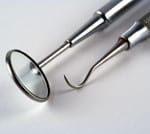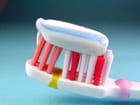 At City Dental Leeds we’re always aspiring to provide gold star standard treatment for our clients and when it comes to gum disease, we have an array of preventative and curative measures. We strongly believe that prevention is always better than cure and we’re here to keep gum disease firmly at bay. If you have signs of gum disease or you wish to maintain a clean bill of oral health, you’ve come to the right place.
At City Dental Leeds we’re always aspiring to provide gold star standard treatment for our clients and when it comes to gum disease, we have an array of preventative and curative measures. We strongly believe that prevention is always better than cure and we’re here to keep gum disease firmly at bay. If you have signs of gum disease or you wish to maintain a clean bill of oral health, you’ve come to the right place.
About gum disease
Gum disease is a common oral disease, which is caused by harmful bacteria releasing acids that irritate the gums. The main symptoms of gum disease include swollen or sore gums, bleeding (which is most noticeable when you clean your teeth), tenderness and redness. The early signs of gum disease are usually relatively easy to treat and this is why it’s so important to see your dentist if you notice symptoms. If mild gum disease is left untreated, it can develop fairly quickly and advanced gum disease is much trickier to treat.
The main risk factor for gum disease is poor oral hygiene, but a diet packed with sugary foods, smoking and avoiding regular dental appointments can also elevate the risk.
Preventative measures
The best way to fight gum disease is to maintain good oral hygiene at home, see your dentist every six to nine months for a check-up and try to steer clear of sugary and acidic foods and drinks. It’s also really beneficial to be aware of the potential warning signs and to act on them if they become noticeable. Booking an appointment at an early stage helps to stop gum disease in its tracks. In order to keep the mouth as clean as possible, we recommend brushing twice a day with fluoride toothpaste and flossing every day. We also highly recommend seeing a dental hygienist at least once every 12 months for a deep clean.
Treating gum disease
Gingivitis, the mild form of gum disease, can usually be tackled with oral hygiene treatments and good cleaning techniques at home. In more severe cases, a number of sessions is usually recommended and these will be provided by our dentists and dental hygienists, who work together to ease symptoms and stem the spread of infection. The aim of gum disease treatment is to prevent the situation from getting worse and ensure that you don’t feel any pain. We tend to use a combination of techniques and treatments including regular hygiene sessions, scale and polish and root planing.
















